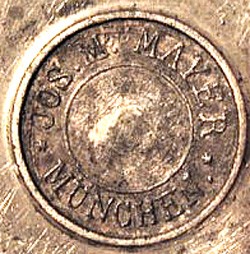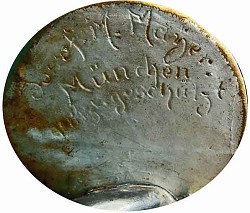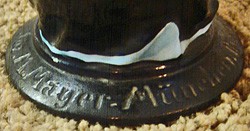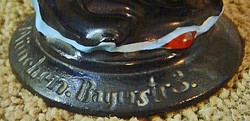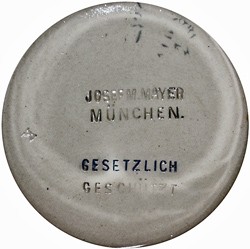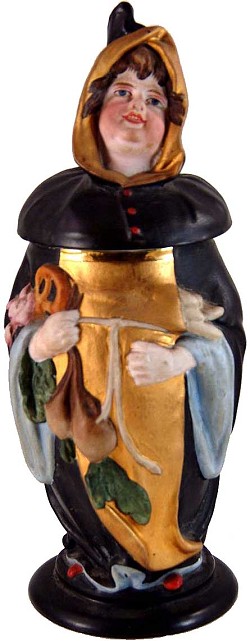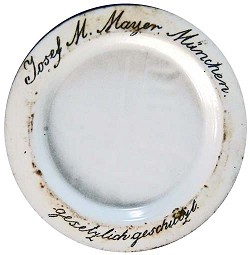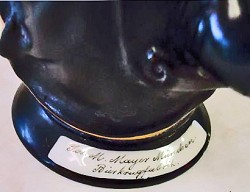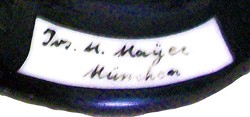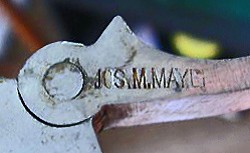Glas-, Porzellan- und Steinguthandlung Jos. M. Mayer
Sonnenstraße 25, Löwengrube 1, Weinstraße 18, Bayernstraße 3, Neuhauserstraße 30, Munich. Bavaria.
Zinngießerei & Malerei. / Pewterers & Decorators
Josef Maier Mayer (1860-1924) was born in Steinach an der Saale in Lower Franconia where a small Jewish community had existed since the 17th century. He settled in Munich in 1888 and established a stoneware business that same year at Sonnenstraße 25, followed by the "Glas-, Porzellan- und Steinguthandlung Jos. M. Mayer" a few months later at Löwengrube 1. The business moved to Weinstraße 18 in 1890. In 1893, Mayer managed to rent especially prestigeous business premises facing the road in the "
Mathäser Bierhalle" building, the largest beer hall in Munich, at Bayerstraße 3, which was completed that same year to plans by August Exter (1858-1933). The business moved one last time to Neuhauserstraße 30 in 1903.
Character steins, which were popular in the 1880s and 1890s, formed the core of the business in the first few years after the founding of the company "Jos. M. Mayer." In an advertisement from 1889, the company described itself as the "largest glass, porcelain, majolica, and Old German stoneware factory outlet" referring to its own pewter foundry and porcelain paintshop, and drawing attention to its "very particular specialities: character beer steins of the Muncher Kindl with inset photograph, together with beer steins with the Royal Hofbräuhaus, the Münchner Kindl, and the City Hall, etc. painted on steins."
After Josef M. Mayer's death in 1924, his wife, Ernestine, carried on running the business at Neuhauserstraße 30. The couple had had no children. In addition to glass, porcelain, and stoneware she also sold silver items up until her death in 1933. Josef M. and Ernestine Mayer were buried in the New Jewish Cemetery in Munich. After her death, the business passed into the hands of Friedrich and Theodor Mayer; who were neither Jewish nor related to Josef M. and Ernestine Mayer. They ran a kitchenware business until the premises was destroyed in World War II.
Purchased stein bodies from:
Reinhold Hanke,
C.G. Schierholz,
Marzi & Remy Merkelbach & Wick Dümler & Breiden #237 August Saeltzer
Reference: Text supplied by Bernhard Purin, Director of the Jewish Museum, Munich.
Character Steins Digital Bibliothek